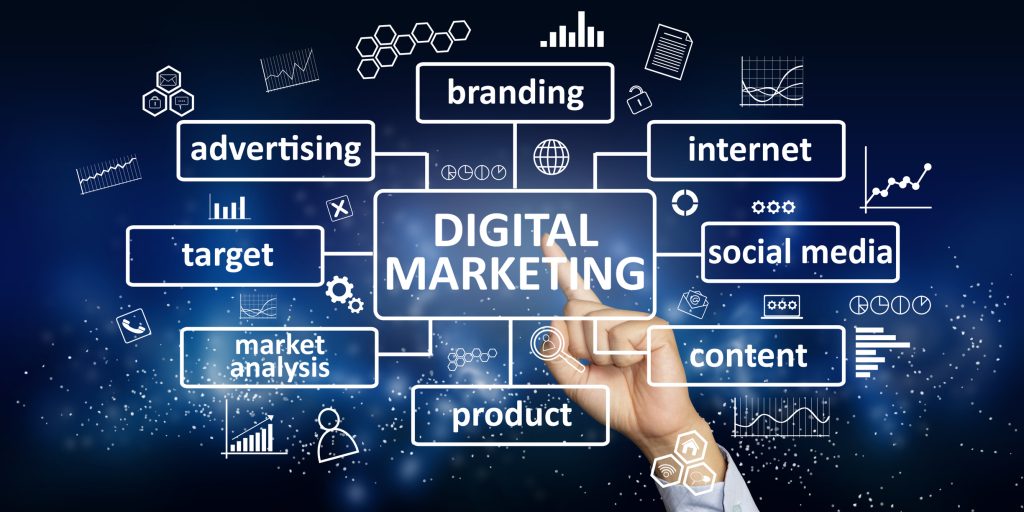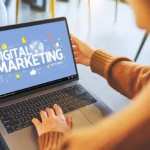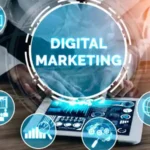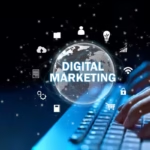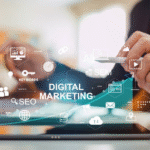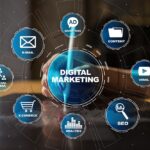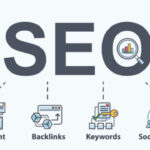Top 10 Digital Marketing Trends in 2025
Digital marketing in 2025 is no longer about simply being online — it’s about being smarter, faster, and more personalized. Technology is moving rapidly, and marketers must adapt to stay ahead of the competition.
This article highlights the top 10 most relevant digital marketing trends in 2025 that professionals, businesses, and freelancers need to know. Every point is backed by current practice and user behavior — not just predictions.
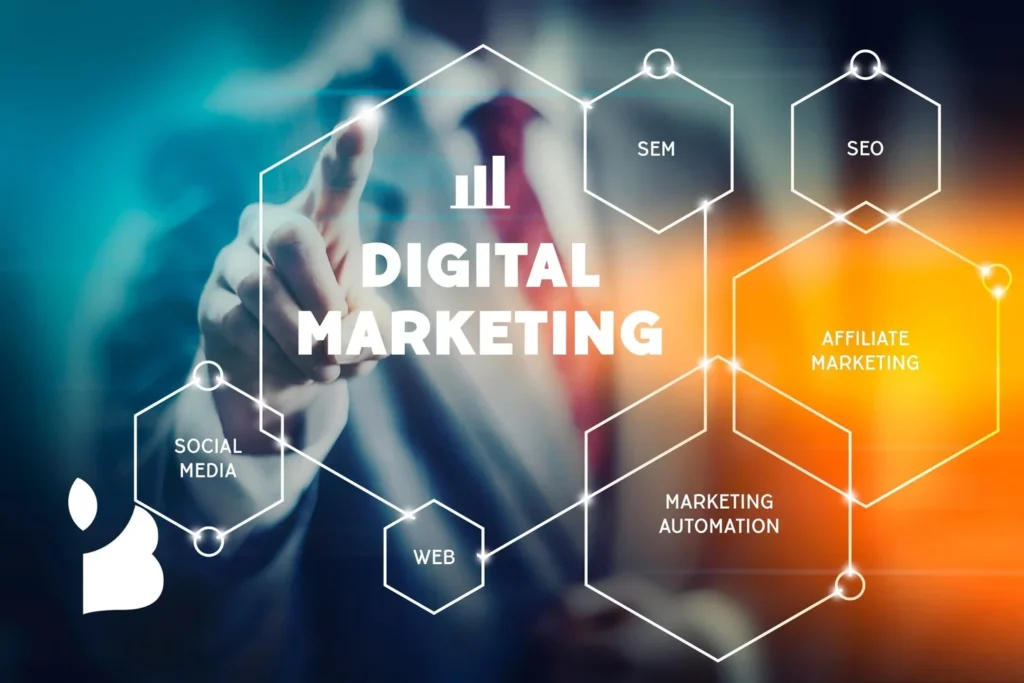
1. Search Experience Optimization (SEO)
Search engine optimization (SEO) has evolved into Search Experience Optimization (SEO). This combines traditional SEO with user experience to meet the needs of both search engines and human readers.
- Google now prefers content that is easy to read, fast to load, and helpful.
- Page speed, mobile responsiveness, and content structure directly impact ranking’
Tip: Focus on content clarity, headings, internal links, and user intent.
2. AI-Driven Personalization
AI is not just for automation — it’s powering real-time personalized experiences in 2025.
- Dynamic emails and landing pages adjust based on user behavior.
- Product recommendations are driven by AI on eCommerce platforms.
Benefits:
- Higher engagement
- Better conversions
- More relevant content delivery
3. Voice Search Optimization
More people are using voice assistants like Google Assistant, Alexa, and Siri. This changes how people search.
- Queries are now longer and conversational.
- Content needs to answer specific questions in natural language.
Tip: Use FAQs, short answers, and conversational tones to optimize for voice search.
4. Short-Form Video Content
Short videos are the most powerful content format in 2025. Platforms like Instagram Reels, TikTok, and YouTube Shorts are leading this change.
- Videos under 60 seconds get the most views and engagement.
- Brands use them for product demos, tips, behind-the-scenes, and testimonials.
Tip: Focus on storytelling, consistency, and mobile-friendly video formats.
5. First-Party Data Collection
With third-party cookies disappearing, marketers must now rely on first-party data — data collected directly from users.
Ways to collect first-party data:
- Signup forms
- Surveys
- Newsletter subscriptions
- Loyalty programs
Tip: Make sure to be transparent and privacy-compliant with all data collection.
6. Interactive and Immersive Content
Interactive content keeps users on your site longer and boosts engagement.
Popular types:
- Polls and quizzes
- 360-degree product views
- Interactive infographics
- AR filters (Augmented Reality
Benefits:
- Higher engagement
- More shares
- Improved dwell time (which helps SEO)
7. Influencer Marketing 2.0
Influencer marketing is evolving. It’s no longer just about celebrity influencers — now it’s about authentic, niche creators.
- Micro and nano influencers (1,000–50,000 followers) are preferred for trust and engagement.
- Brands focus on long-term partnerships, not one-time promotions.
Tip: Choose influencers based on audience fit, not just follower count.
8. Multi-Channel Strategy with Unified Messaging
Being on multiple platforms isn’t enough anymore. The message must be consistent across all channels — email, website, social media, paid ads, etc.
Example Table: Cross-Platform Marketing Strategy
| Platform | Role in Marketing Funnel | Example Usage |
| Website | Brand trust, information hub | Detailed content and landing pages |
| Email Marketing | Retention and upselling | Newsletters, exclusive offers |
| Social Media | Awareness and engagement | Reels, carousels, user stories |
| YouTube | Education and authority | Tutorials, interviews, product demos |
9. Content Based on Experience and Trust (EEAT)
Content that shows experience, expertise, authority, and trust ranks better in 2025. Google prioritizes content that is:
- Written by experts or people with real-life experience
- Factually accurate and updated
- Supported with credible sources
Tip: Use author bios, expert quotes, and original insights to build credibility.
10. Hyperlocal Marketing
Even though the internet is global, hyperlocal strategies are growing fast.
- Google prioritizes local intent in mobile searches.
- Businesses use geo-targeted ads, local SEO, and neighborhood-based content.
Example: “Best coffee shop near me” → Brands optimize their business profiles, reviews, and map listings.
✅ Summary Table – 2025’s Top Digital Trends
| Trend No. | Name | Key Impact |
| 1 | Search Experience Optimization | Improves ranking and user satisfaction |
| 2 | AI Personalization | Customizes content, increases conversions |
| 3 | Voice Search | Adapts to new search behaviors |
| 4 | Short-Form Video | Maximizes engagement |
| 5 | First-Party Data | Builds data ownership, privacy-compliant |
| 6 | Interactive Content | Keeps users engaged |
| 7 | Influencer Marketing 2.0 | Builds trust with real voices |
| 8 | Multi-Channel Strategy | Delivers a consistent brand experience |
| 9 | EEAT Content | Enhances credibility and visibility |
| 10 | Hyperlocal Marketing | Targets users by location |
❓ Frequently Asked Questions (FAQs)
1. What is the most effective digital marketing trend in 2025?
Short-form video content and AI personalization are leading in both engagement and ROI. They are easy to implement and highly impactful.
2. Is voice search important for SEO in 2025?
Yes. Voice search affects how people phrase queries. Websites that answer questions in natural, conversational language perform better.
3. How does first-party data help marketers?
It gives businesses direct, reliable data about their customers. This improves personalization and reduces reliance on external platforms.

